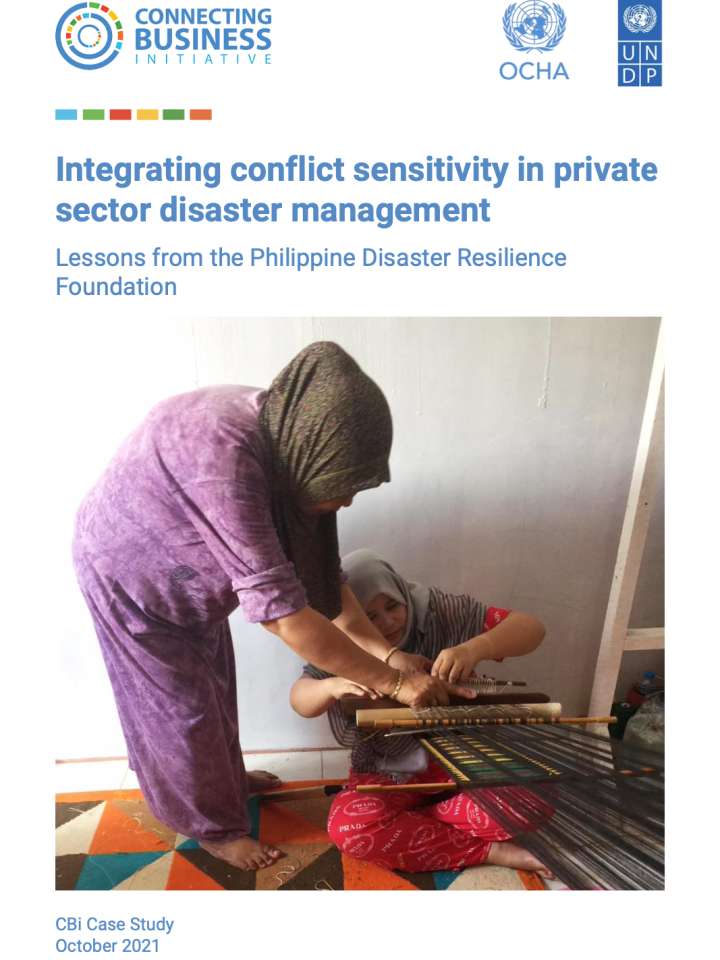Integrating conflict sensitivity in private sector disaster management: Lessons from the Philippine Disaster Resilience Foundation
This Connecting Business initiative (CBi) case study showcases how one CBi Member Network, the Philippine Disaster Resilience Foundation (PDRF), has considered conflict sensitivity in its disaster management programming. When a disaster strikes, aid interventions can have unintended consequences, and lead to social tensions and ultimately more violence – even in otherwise peaceful contexts. As the private sector plays an increasing role in disaster management, businesses have to mitigate the risk of conflicts and be careful to integrate local context and sensitivities. With examples from the conflicts in Zamboanga City and Marawi City, the case study provides an overview of the interventions PDRF and its partners implemented but also explains why and how they adjusted their operations to do no harm.
The key takeaways from the study are:
- Implementing conflict sensitivity in private sector disaster management is not always as straightforward as theory might suggest, as non-textbook challenges may occur along the way that disrupt programme design and implementation.
- It is critical for private sector networks to start somewhere, act effectively and efficiently, and do as much as possible with the resources and knowledge available.
- The concept of conflict sensitivity was new to private sector stakeholders responding to the conflicts in Zamboanga and Marawi City, but with a simplified process for analysis and tailor-fitted tools, private sector actors were able to play a vital role in rebuilding fragile and conflict-affected communities.
Explore further
